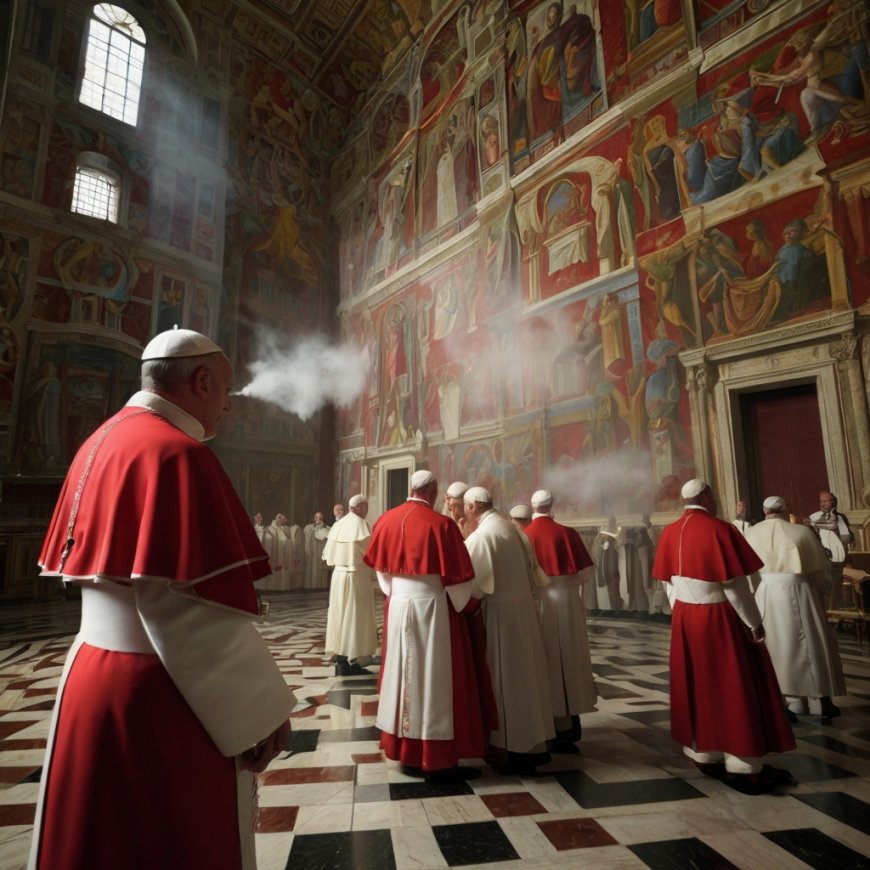Who Will Be the Next Pope? How the Secret Vatican Conclave Works
With the passing of Pope Francis, the Catholic Church faces a critical moment in its history: the secretive conclave to elect the next Pope. Discover how the Vatican chooses its spiritual leader.

A New Chapter for the Catholic Church
Following the death of Pope Francis at 88 in his Santa Marta residence, the Catholic world is faced with one of the most significant decisions in its modern history: the election of a new spiritual leader. The news has shaken not only the 1.3 billion Catholics around the globe but also political and religious leaders who closely monitor every move from the Vatican.
The Chair of Saint Peter remains vacant amid deep tensions within the Church, marked by ideological divides, past scandals, and a visible decline in global followers. Who will be able to lead the oldest institution in the Western world through such turbulent times? The process to choose Francis’ successor is governed by ancient rules and rituals that intertwine tradition, secrecy, and politics.
The Conclave: A Centuries-Old Process Shrouded in Mystery
The method of selecting a new Pope is called a conclave, derived from the Latin cum clave, meaning “with a key.” The term refers to the practice of locking cardinals inside a secure area—today, the Sistine Chapel—until a decision is reached.
Only cardinals under 80 years old are eligible to vote, leaving just over 120 electors for this conclave. The voting is conducted through secret ballots, manually placed in an urn, then burned in a special stove. From its chimney rises the famous smoke signaling the outcome to the world: black smoke for no decision, white smoke to announce the arrival of a new Pope, accompanied by the proclamation, “Habemus Papam” from the balcony of Saint Peter’s Basilica.
Who Can Be Pope? Requirements for the Throne of Saint Peter
While in theory, any baptized male Catholic can be elected Pope, in practice the role has always fallen to a cardinal. Throughout history, no Pope has been chosen from outside the ranks of ordained priests and cardinals due to the theological and pastoral complexity of the position.
If the chosen candidate is not a bishop, he must be ordained immediately before assuming his role. This time, debate over the ideal profile is more intense than ever: should it be a reformer who extends Francis’ legacy, or a conservative who restores orthodox tradition?
The Top Candidates: Five Names to Watch
1. Luis Antonio Tagle (Philippines)
At 67, the charismatic Filipino cardinal leads the Church’s progressive wing. Appointed by Pope Francis as Prefect of the Congregation for the Evangelization of Peoples, Tagle advocates for openness towards marginalized communities and a more inclusive Church.
His election would signal a pivot toward Asia, where Catholicism steadily grows, and a clear message of modernization.
2. Matteo Zuppi (Italy)
At 69, the Archbishop of Bologna and President of the Italian Episcopal Conference, Zuppi has worked actively in peace processes, such as in Mozambique, and promotes interfaith dialogue. His progressive yet balanced leadership positions him as a consensus candidate within the conclave.
3. Pietro Parolin (Italy)
Seen as the most powerful figure in the Vatican, Parolin, 70, has served as the Vatican Secretary of State since 2013. Instrumental in diplomatic agreements, including the historic rapprochement with China, his diplomatic expertise makes him a favorite of traditional and international sectors.
4. Peter Turkson (Ghana)
At 76, Turkson has built a reputation championing social justice, environmental issues, and migration. His election would be historic, making him the first modern African Pope, a powerful testament to the Church’s universality.
5. Raymond Leo Burke (United States)
At 76, Burke remains the most controversial contender. His ultraconservative stances and outspoken criticism of Francis’ reforms have polarized the Church. With ties to far-right U.S. politics and Trump-aligned factions, his election could spark significant geopolitical tensions within the Vatican.
Geopolitics and Power: The Silent Struggle Behind the Conclave
The conclave’s decision not only shapes the spiritual future of millions but also carries deep political and diplomatic implications. Reports suggest U.S. congressional circles and European governments are subtly maneuvering to influence the papal election.
A Burke papacy would represent a victory for conservative forces and threaten the progressive agenda established over the past 12 years. Meanwhile, emerging countries like the Philippines and Ghana see in Tagle and Turkson a chance to elevate leaders from their regions to global spiritual prominence.
A Church in Crisis: Troubling Numbers
The next Pope will inherit a Church in turmoil. According to the Annuario Pontificio, Catholic numbers have sharply declined in Europe and Latin America, with growth limited to Asia and Africa. Clerical abuse scandals, the loss of political influence, and the rise of secularism pose daunting challenges for any new pontiff.
Current estimates show only 17% of young Europeans identify as practicing Catholics, while in Latin America, Catholicism has steadily lost ground to evangelical churches.
When Will the Conclave Begin?
The Vatican has confirmed the conclave will convene ten days after Pope Francis’ funeral, as dictated by the apostolic constitution Universi Dominici Gregis. During this period, cardinals will reside at Domus Sanctae Marthae and remain in total isolation, barred from using phones, internet, or media communication.
A Decisive Moment for the Church and the World
The election of the next Pope will prove pivotal not only for Catholic faithful but also for global politics, diplomacy, and interfaith dialogue. Beyond the names and alliances, what’s truly at stake is the moral and spiritual direction of an institution that still commands influence over millions.
Until white smoke billows from the Vatican chimney, the world watches closely, aware that each ballot shapes decades of history, tradition, and geopolitics.
What's Your Reaction?
 Like
0
Like
0
 Dislike
0
Dislike
0
 Love
0
Love
0
 Funny
0
Funny
0
 Angry
0
Angry
0
 Sad
0
Sad
0
 Wow
0
Wow
0

































